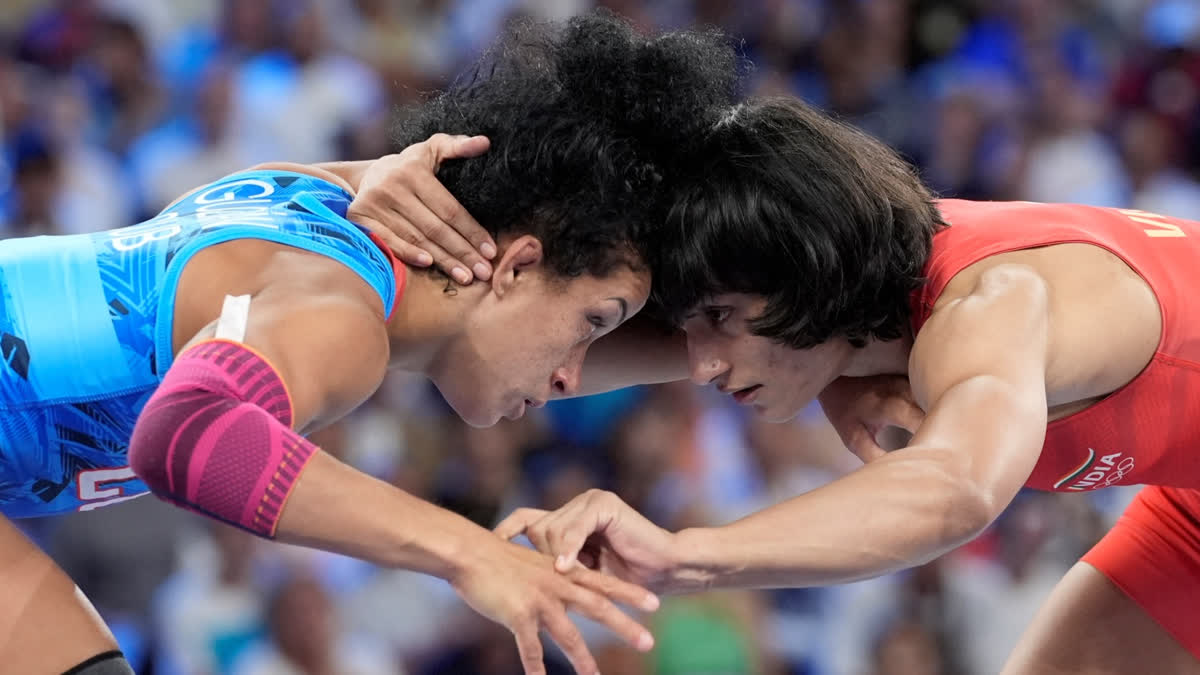Once we get over this killing shocker of the news of Vinesh Phogat’s disqualification, one thing is clear – medal or no, Vinesh is India’s Gold Medal, not the one around her neck that would have been there.
Phogat’s display of determination, courage, conviction, and skill on the Paris Olympics’ wrestling mat is symbolic of the way this fighter has wrestled with the odds all her life. It is also symbolic of how, sadly and regrettably, women have to fight for issues that should not be issues at all.
A torn knee ligament in Rio, getting pinned with the tag of a “khota sikka” post Tokyo and the intervening years which saw her being mauled by the police on the roads of Delhi where she was protesting against the then Federation head Brij Bhushan Sharan Singh’s alleged and continuous molestations of women wrestlers, she has made the nation of one billion plus bow their heads in pride, and some in shame.
Prime Minister Narendra Modi who has been generally quick to acknowledge sporting achievements and even spared time to meet the T20 World Cup cricket champions in Delhi recently, after a long silence, finally commented that Phogat’s unparalleled, almost surreal effort was applaudable.
The treatment meted out to Phogat and her co-protestors, the videos of Olympic medallist Sakshi Malik crying uncontrollably about the treatment meted out to the athletes, Phogat being manhandled by the police and all the girls protesting against the alleged predator Sharan Singh on the streets of Delhi for something that should have been sorted by the Government without a single tear shed, talks volumes about how the system gets you and why the conviction rate in rape cases is as non-existent as 0.03 per cent.
This is despite the post-Nirbhaya change of laws to aid the victims of sexual violence. But then as Phogat rightly said, unless there is extreme violence in a rape case which catches national attention, the violence of women hardly gets noticed or redressed.
Not just rape, the same goes for murder and other such crimes against women. Why should a Nirbhaya need a national movement to get justice? Why did Jessica Lal’s sister have to fight a long and lonely battle to get the perpetrators to jail; why should a grieving mother like Neelam who lost her son to extreme violence orchestrated by sons of men in power is made to fight for justice for three long decades?
